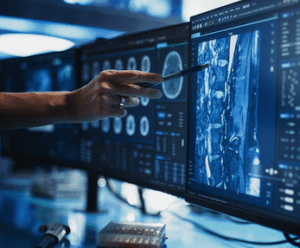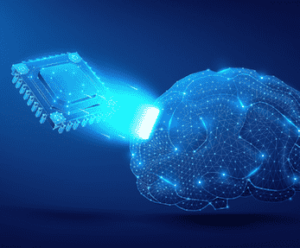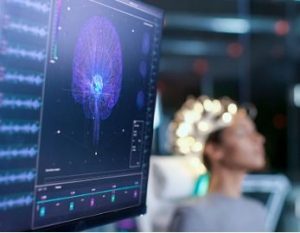Doctors Have Been Diagnosing Patients for Millennia. Soon, Will Robots?
In the classic sci-fi series "Star Trek," humans often relied on their tricorders—handheld devices capable of diagnosing nearly any ailment in seconds. People have long dreamed of a world where machines could identify our medical problems with certainty. While such technology is still far in the future, recent advances in artificial intelligence have made this vision seem less fantastical.
Breast Cancer Awareness Month 2024: Advocacy Guide
Access to care has become a top issue in the hereditary cancer community now that genetic testing has become so widely available. This is especially of concern for previvors, individuals with a known genetic risk of cancer but who have not been diagnosed with the disease, as well as survivors, who may be at heightened risk of other types of cancer as well as recurrence.
Rehabilitation Awareness Week 2024 – Expert Interview & Advocacy Guide
Physiatry is commonly referred to as the practice of physical medicine and rehabilitation (PM&R). PM&R doctors work in both inpatient and outpatient settings. Patients receive these services following an injury, illness, or disabling condition that affects not just the bones, joints, ligaments, muscles, and tendons—as one might expect—but the brain, spinal cord, and nerves, too.
Developments in Oncology Over the Last Year Showing Promise for Cancer Patients and Others
MedicalTechnologySchools.com analyzed academic studies and resources from leading cancer research institutions, including the Mayo Clinic and the Cancer Research Institute, to round up the latest advancements in oncology—the science of diagnosing, preventing, and treating various forms of cancer.
Hospital At Home: Empowering Patients to Heal Remotely
With advancements in medical technology and telehealth, an innovative model known as hospital at home has emerged, allowing patients to receive hospital-level care in the familiarity and comfort of their own homes, blending professional healthcare with the therapeutic benefits of being in one’s personal space.
Companies to Watch Using AI in Drug Discovery
With AI, pharmaceutical companies can accelerate the drug discovery process, enhance the precision of targeting specific diseases, and significantly reduce the time and cost associated with bringing new medications to the market. AI's ability to analyze vast datasets and uncover patterns invisible to the human eye opens up new opportunities for personalized medicine and novel treatments.
How are Medical Technologies & AI Used in Preventative Healthcare?
In the rapidly evolving healthcare landscape, adopting advanced technologies plays a pivotal role in shifting the focus from treatment to prevention. Artificial intelligence (AI) stands out as a transformative force among these technologies. AI algorithms are increasingly harnessed to predict, prevent, and manage potential health issues, offering a proactive approach to medicine that promises to enhance patient outcomes and optimize healthcare resources.
How Technology is Bridging Brains with Computers
Neuralink, a U.S. startup co-founded by Elon Musk, works on "brain-computing interfaces," known as BCI, which connect the brain to digital technology. Such devices come in different forms: Some are surgically implanted into peoples' heads, while others are noninvasive and sit outside of a person's body. In May 2023, the product received approval from the Food and Drug Administration for clinical trials, but it has yet to hit the market.
What is Neurotechnology? The Emerging Field That’s Changing Minds
We're already entwined with neurotechnology in ways that once seemed the exclusive domain of science fiction. From direct interfaces like brain-computer interfaces (BCIs) that enable individuals to control prosthetic limbs or communicate without physical movement, neurotechnology is steadily blurring the lines between the brain's organic processes and digital augmentation.
Upskilling in the Allied Health Professions
Partly propelled by the pandemic and partly by the momentum of technological innovation, the last few years have marked the beginning of a whirlwind of rapid change within the healthcare sector. The use of telehealth has stood the test of time, now a permanent option at many hospitals and private practices across the country. Meanwhile, a host of AI-based tools have entered the scene, modernizing diagnostics, patient monitoring, and interpretations of images and scans. Additionally, a shift in the type of healthcare that will be in the highest demand is also underway.









